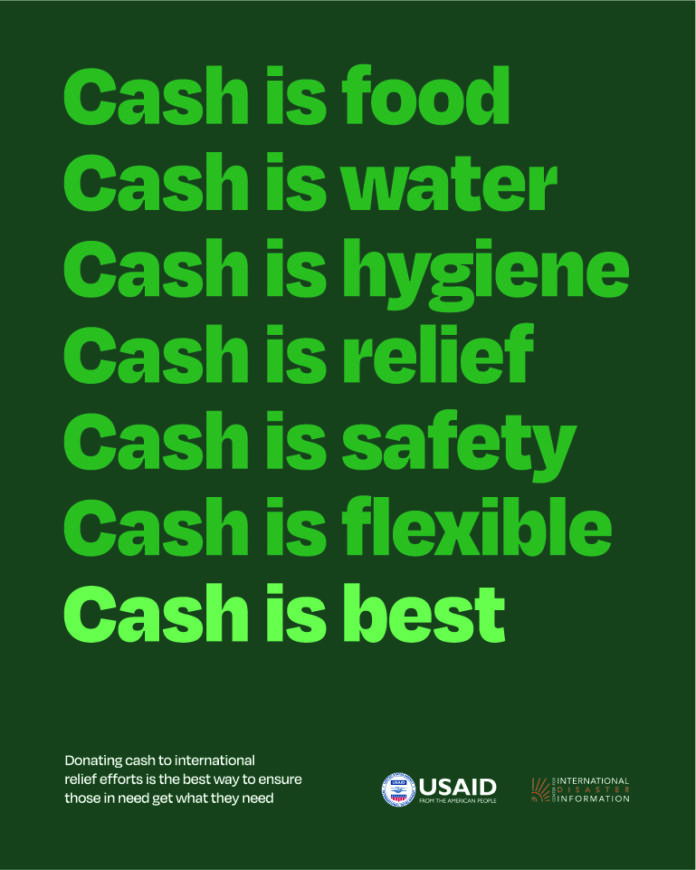When natural disasters strike around the world, Americans are known for their generosity and desire to help those impacted. 63 percent of Americans surveyed in a Harris Interactive poll said they had donated to disaster relief efforts in the last five years. Sometimes, those donations include monetary donations, but most times, people give material goods, like bottled water, canned food or clothing.
While material donations are well-intentioned, they often create new challenges, which can take away valuable time and resources from recovery efforts on the ground. Cash or monetary donations, by contrast, provides much more flexibility to meet short- and long-term needs and actually has a greater impact for reasons that may not be immediately obvious.
CASH DONATIONS PROVIDE THE BEST BANG FOR THE BUCK
Shipping physical items around the world can be expensive, clog runways used for relief flights, and take a long time to arrive. For example, sending bottles of water overseas after a disaster may seem like a good idea but it’s not the most efficient or effective way to help. The cost of shipping 100,000 liters of bottled water overseas costs about $350,000, while the cost of in-country water purification systems can provide about the same amount of water for just $300. That’s a huge difference. It is also important to remember that food and drinking water can almost always be purchased locally, even following a disaster.
In addition, in an emergency when timing is critical, organizations can process monetary gifts quickly and deliver exactly what survivors need.
Analysis
This article is very concise about the reasons why cash is best after a disaster. Cash doesn’t care about your culture. Donating money is the best way for a community to rebuild after being hit by a disaster. Similarly to taxes (unfortunately), money is the easiest type of conversion. A material good loses its value once it is bought, yet money maintains its value. This article makes me think about donations in general. Are donations actually helpful? For example, food drives that take unwanted pantry items are then taken to food pantries. Yes, this is helpful and challenges one aspect of food waste. But on the other hand, what if people never bought that food to begin with and donated the cash instead? How would that change the design of the food pantry and donations overall? Is there a way to convert used items to cash without reselling them?




